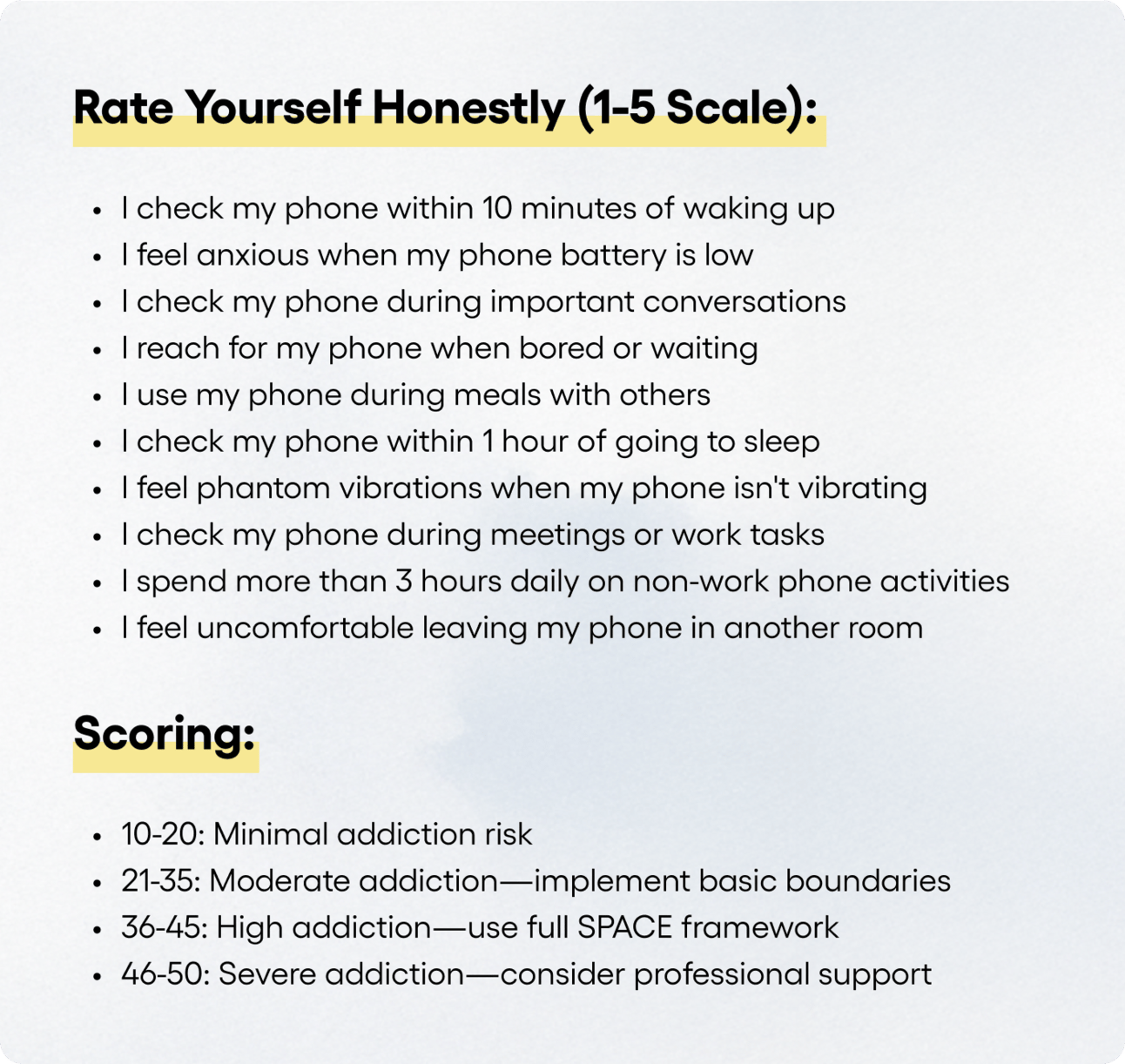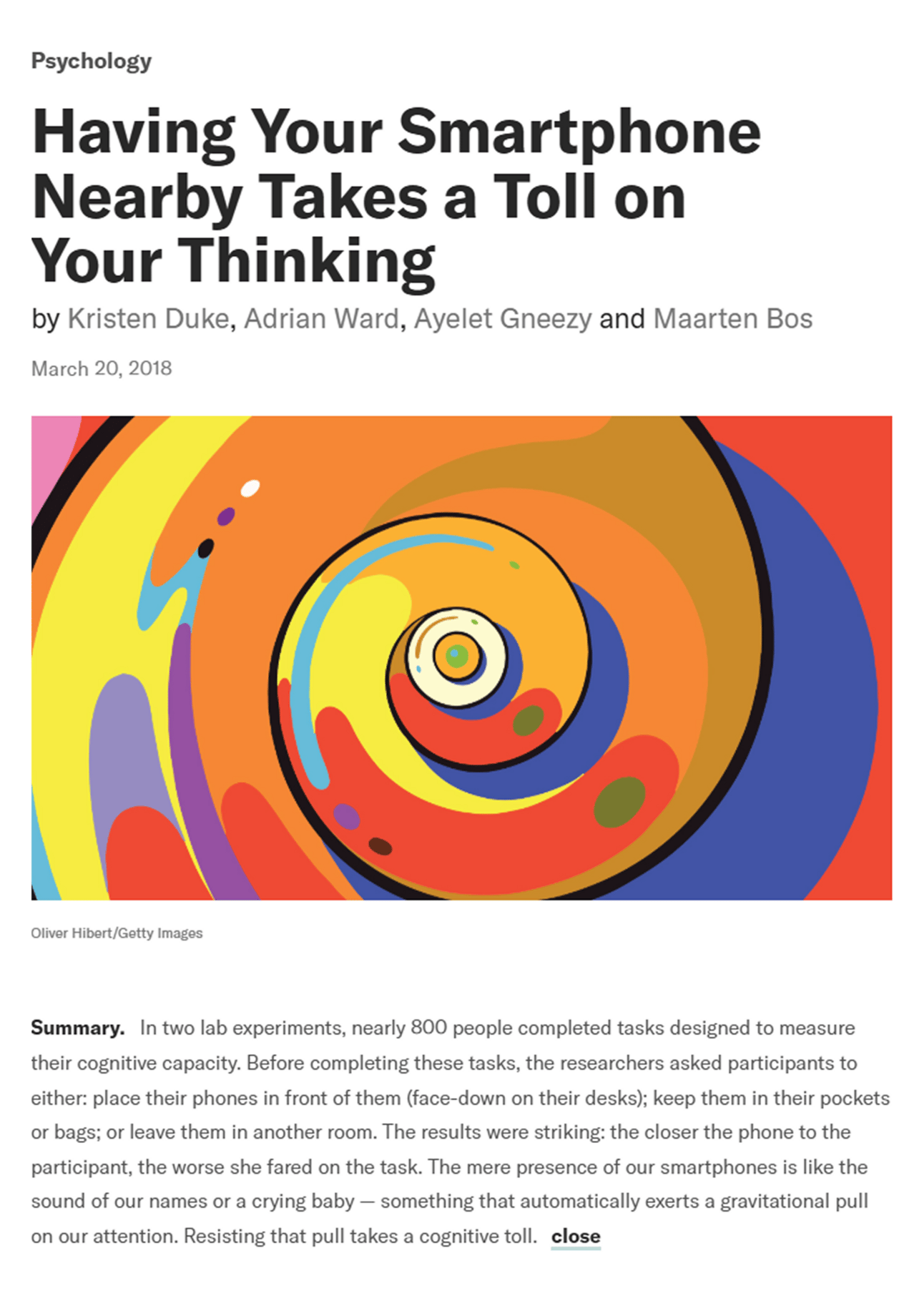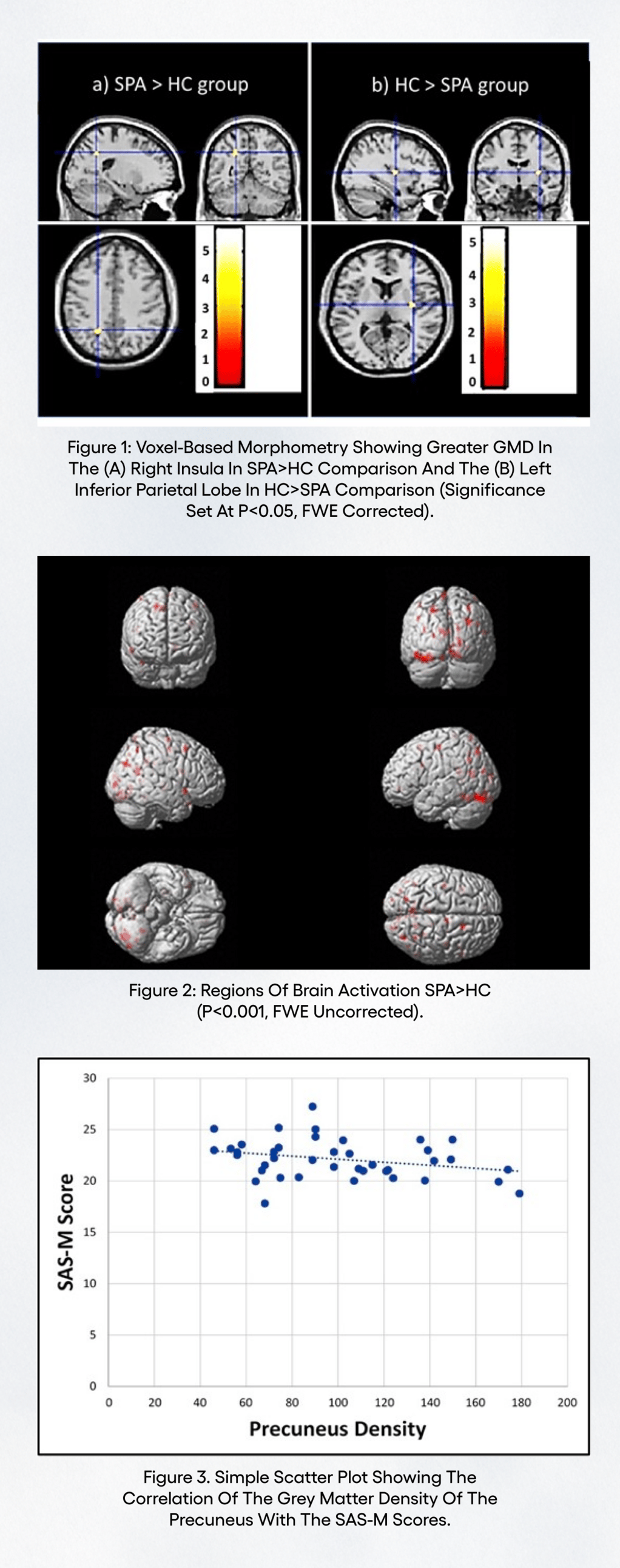- Ritesh Malik
- Posts
- your phone addiction
your phone addiction
buzz buzz. and that's it. attention gone
The moment I realized my smartphone was making me more distracted than my 12-year-old nephew.
Picture this: You're in the biggest meeting of your life.
₹50 crores on the table.
Three months of preparation.
Every detail matters.
Your phone is face-down. Silent. You're totally focused.
Buzz.
You don't look. You're disciplined. You're professional.
Buzz. Buzz.
"What if it's urgent?" you think in your head.
You crack. "Sorry, just one second."
The notifications? A friend sharing a meme, a LinkedIn article I'd never read, an Amazon delivery update, and a promotional offer from a food-delivery app.
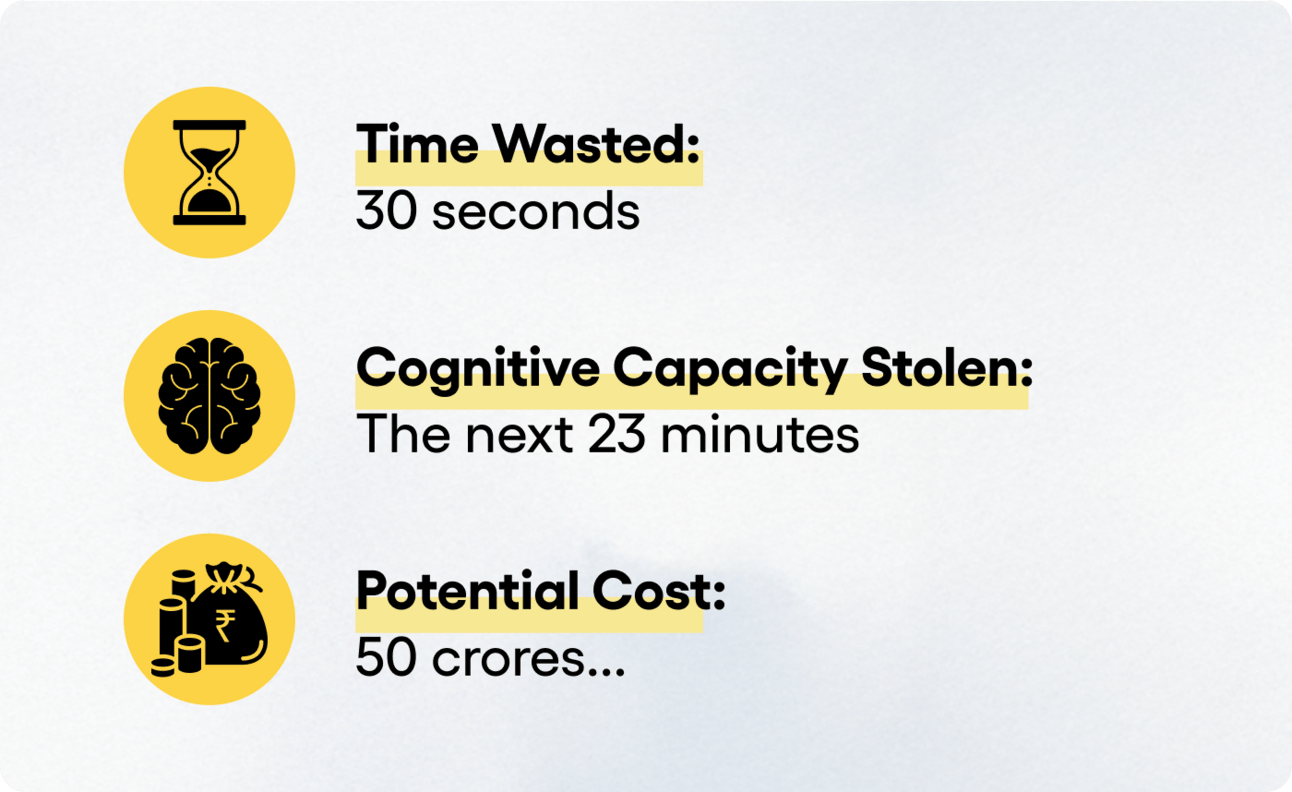
This happened to me in 2024 (and ofc a lot more times)
Basically my brain was being hijacked by a piece of metal and glass.
That night, I called my 12-year-old nephew to wish him for his birthday.
He was doing math homework, without his phone.
For 2 straight hours.
When I asked him how, he said, "Uncle, I just put it in another room. Why is that so hard?"
That got me thinking. Is it just me or is this a real problem?
What I found changed how I think about success, focus, and the future of Indian business.

Dr. Adrian Ward at University of Texas ran the most eye-opening experiment I've ever seen.
800 people. Simple cognitive tests. Three groups:
Phone in another room: 100% brain power
Phone in pocket (off): 91% brain power
Phone on desk (off): 81% brain power
The phones were completely turned off.
Think about that.
Just the physical presence of smartphones reduces available cognitive capacity by up to 19%.
But here's the real gut punch: research shows it takes 23 minutes and 15 seconds to fully refocus after any phone interruption.
Most of us check our phones every 12 minutes.
We never reach full cognitive capacity. Ever.
I realized something terrifying: I hadn't had a single uninterrupted strategic thought in months. My brain was running at 60-70% capacity while I was making million-dollars worth of decisions.
It gets worse…
Indians are getting destroyed because of smartphones…
New research shows 64.6% of Indian adolescents have smartphone addiction—the highest rate globally. These aren't just kids. These are the future CEOs, CTOs, and founders of India.
68.6% of Indian adults have nomophobia—literally being afraid of not having their phone. Urban professionals are 2.4x more likely to be addicts.
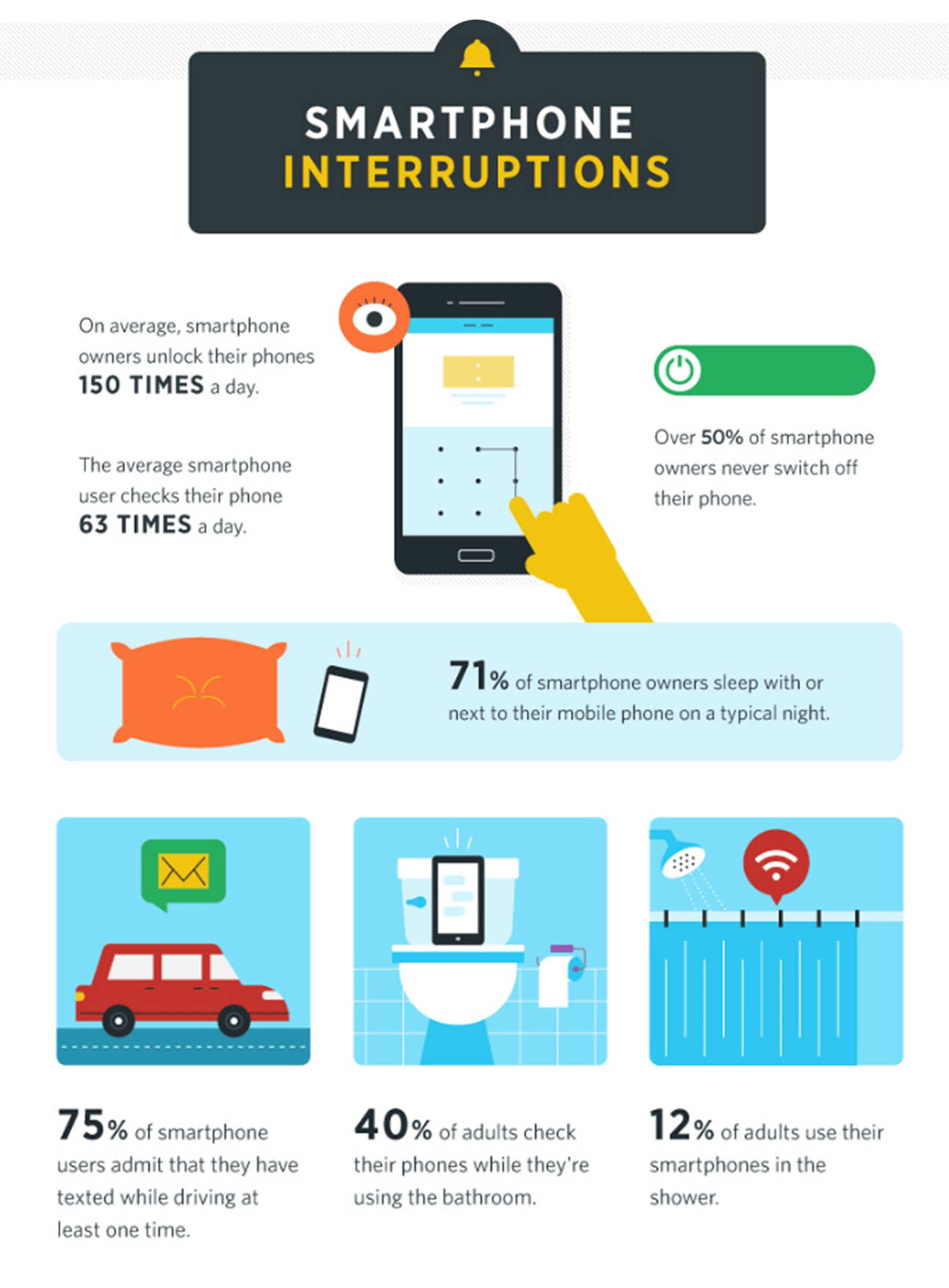
But here's India's unique curse: WhatsApp workplace culture.
88.3% of Indian employees use WhatsApp for work. We've created a business environment where every ping feels urgent, every group message demands immediate response.
So I asked a colleague in HR to track our team's patterns:
6 active work WhatsApp groups per person
127 messages daily average
18 minutes reading/responding to work WhatsApp
23 minutes to refocus after each check (basis stats)
The math is brutal: 3+ hours daily of fragmented attention. We thought we were being productive. We were actually destroying our cognitive capacity.
Meanwhile, studies show smartphone addiction costs businesses $650 billion annually in lost productivity. In India, with our extreme usage patterns, this number is catastrophic.

Remember that ₹50 crore meeting? Here's what really happened:
Question 1: "What's your risk assessment framework?" My answer was generic, surface-level. I missed the subtle signal that they wanted something specific.
Question 2: "How do you handle market volatility?"
I gave a textbook response instead of the nuanced, experience-based insight I had.
Question 3: "What makes you different from other fund managers?" I fumbled. The unique value proposition I'd spent weeks perfecting? Gone.
All because 30% of my cognitive capacity was hijacked by phantom phone anxiety.
That night, I made a decision that changed my business trajectory.
The Smartphone Detox Experiment
I spent the next 30 days treating my smartphone addiction like the business emergency it was.
Week 1: The Awareness Shock I installed a tracking app. The data was humiliating:
Daily usage: 6 hours 23 minutes
Daily pickups: 67 times
Longest uninterrupted work: 18 minutes
I was checking my phone more often than I was breathing consciously.
Week 2: Physical Separation Started charging phone in the kitchen, not bedroom. Keep the phone in the drawer during meetings. Research shows just these changes improve cognitive performance measurably.
Week 3: Notification Purge
Turned off everything except calls and one essential WhatsApp group. Phone pickups dropped from 67 to 13 daily.
Week 4: Boundary Creation Three designated phone times: 9 AM, 1 PM, 6 PM. Everything else could wait.
Results after 30 days:
Daily usage: 6h 23m → 1h 47m
Strategic thinking time: 30 minutes → 2+ hours daily
Phone pickups: 67 → 13 daily
The mental clarity was like switching from a 2G connection to 5G.

Reminder: smartphone addiction isn't a personal failing. It's engineered.
Research shows smartphones use intermittent reinforcement: the same psychological mechanism as slot machines. Every notification triggers dopamine release, creating compulsive checking behaviors.
Neuroimaging studies show smartphone addiction causes actual brain changes: reduced gray matter in areas controlling executive function, altered connectivity in attention networks.
Your phone was designed by teams of neuroscientists to be irresistible. Studies show Cognitive Behavioral Therapy has 43% success rates for smartphone addiction, but you don't need therapy to start.
The key insight: this isn't about willpower. It's about systems.
The FOCUS Recovery Framework
Here's the exact system I used to reclaim my cognitive capacity:
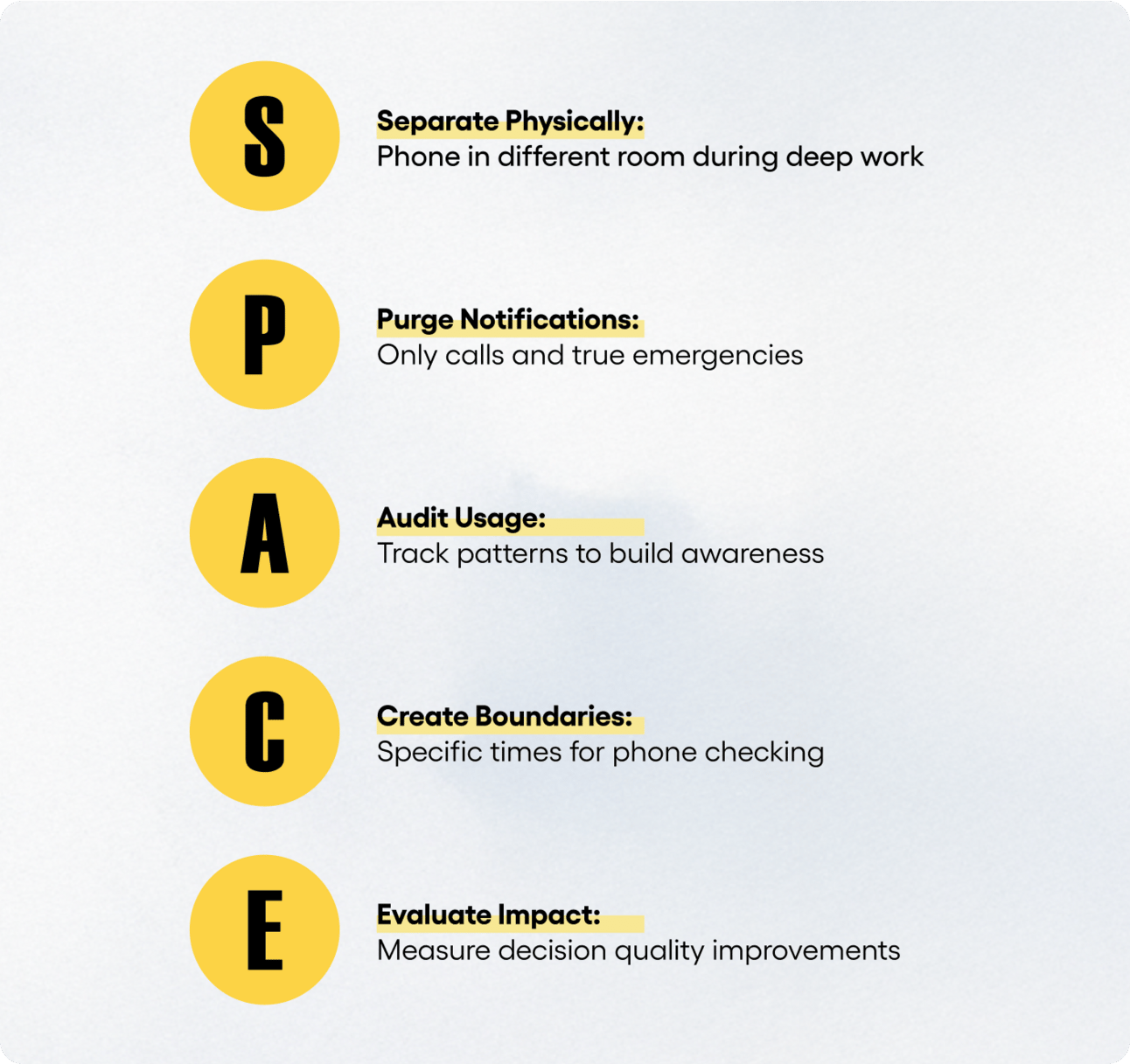

Australia just implemented "Right to Disconnect" laws giving employees legal protection from after-hours smartphone demands.
Meanwhile, Indian startups wear 24/7 WhatsApp availability as a badge of honor.
Maybe the real competitive advantage isn't being more connected, it's being more focused.
Your move.
Until next week,
Ritesh
P.S. - That 12-year-old nephew? He scored 98% in math this term.
PPS: Your Smartphone Addiction Assessment
